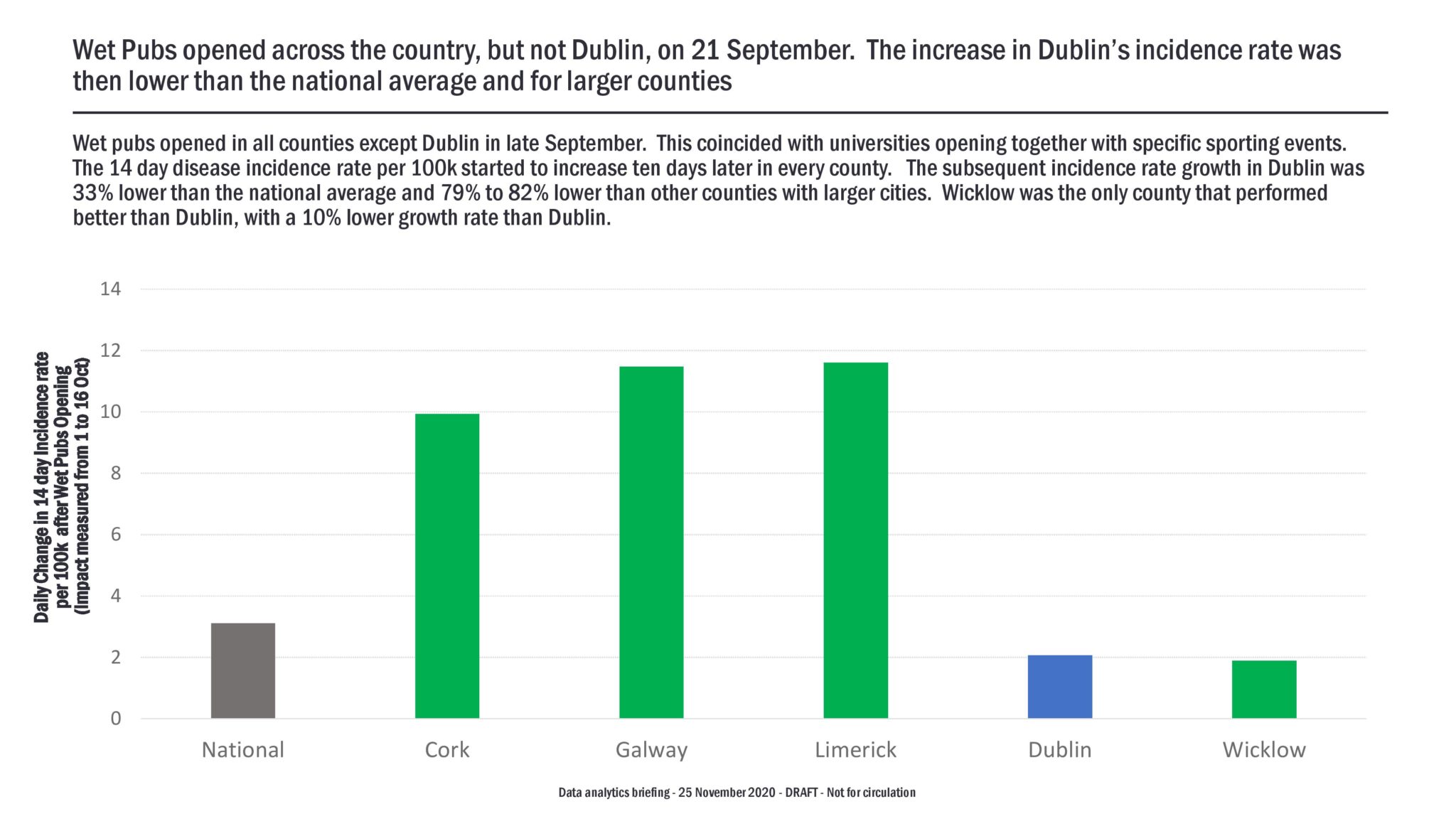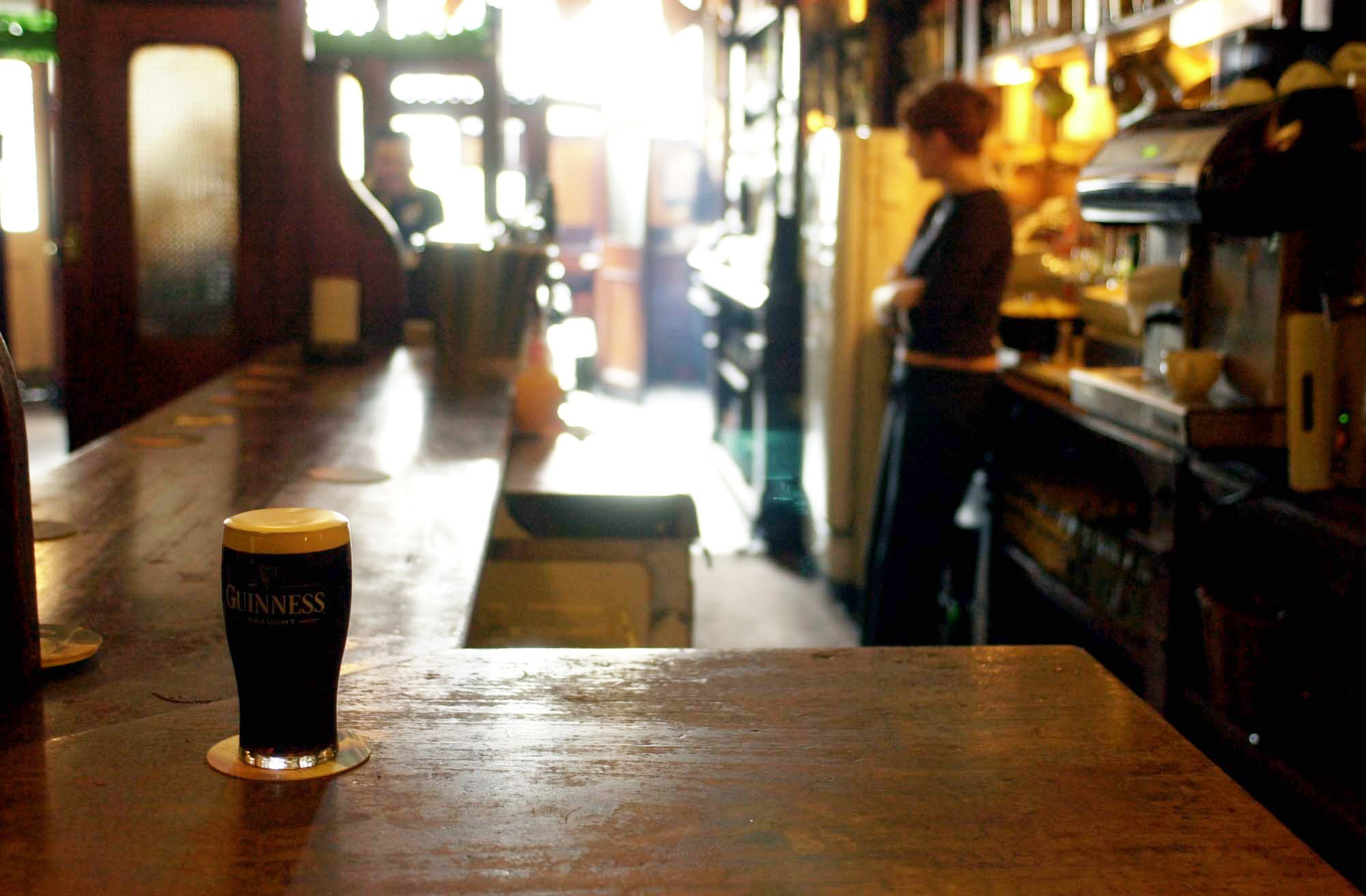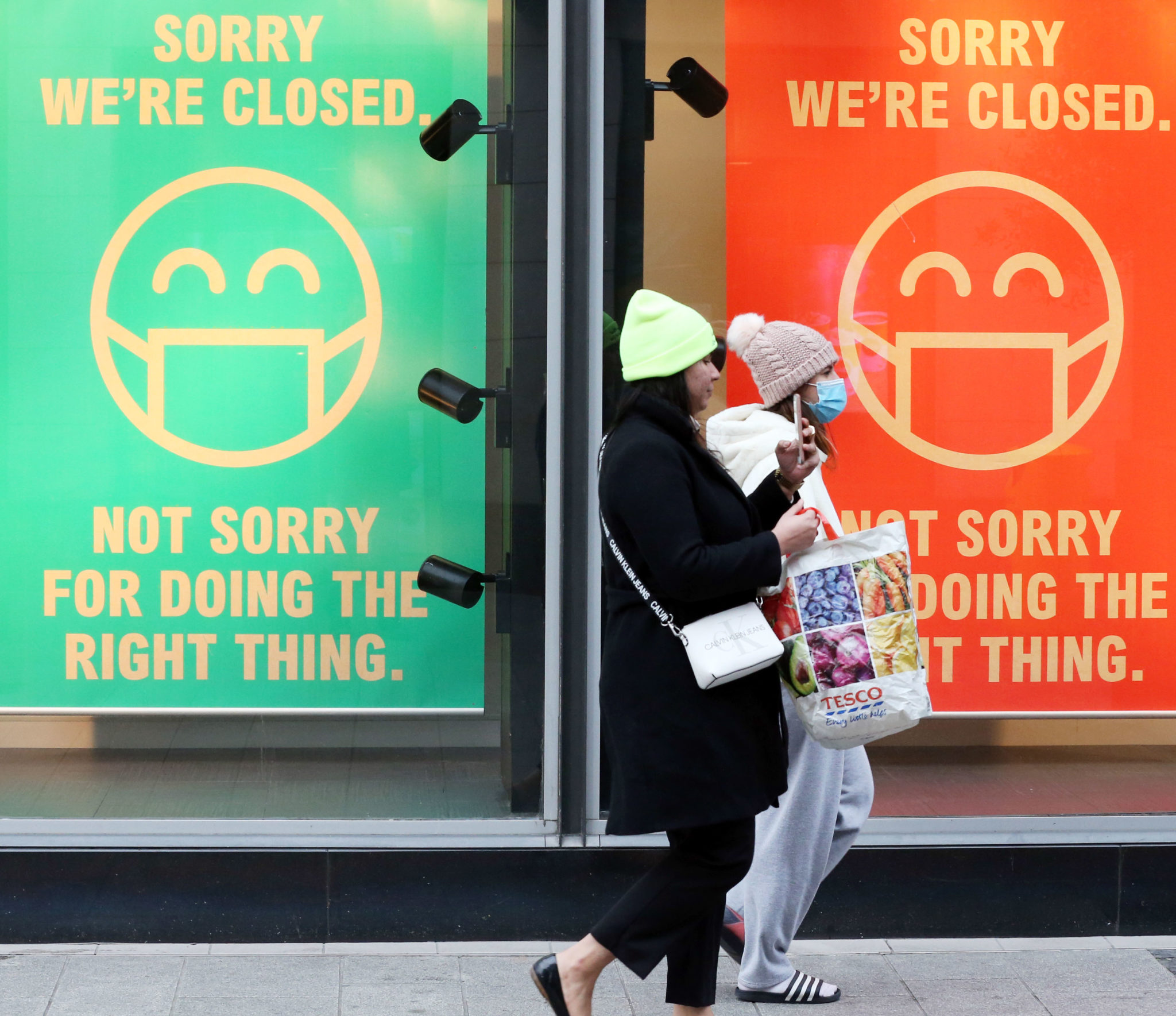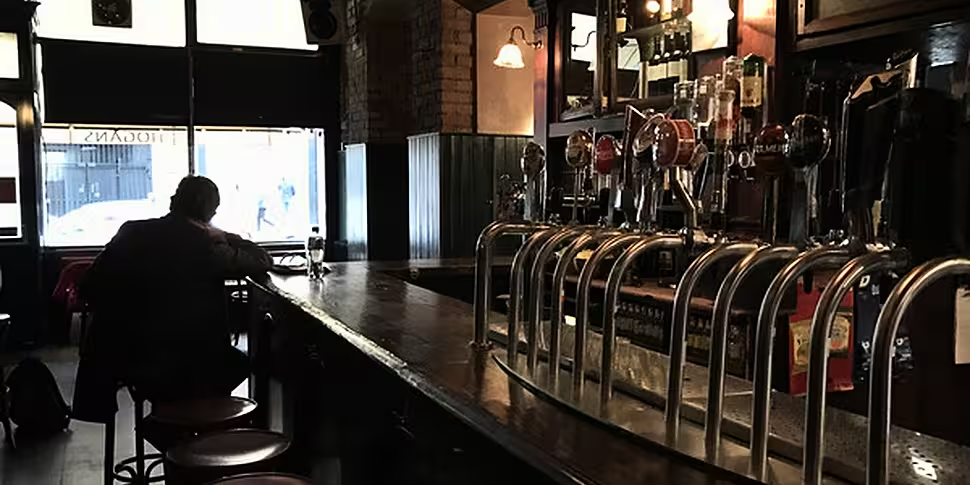The international evidence shows that pubs and restaurants are likely “major spreaders” of coronavirus, according to a public health expert.
Vintners have insisted that the decision to order pubs that don’t serve food to remain closed for Christmas is based on politics rather than science.
The Vintners Federation of Ireland (VFI) has warned that pubs account for just 0,28% of COVID-19 outbreaks in Ireland – while almost 75% have been traced to household settings.
Contact tracing
DCU Professor Anthony Staines said that, while Ireland has not investigated where household infections were originally seeded, other countries have done so.
“For most people in Ireland, we don’t know where they were infected,” he said.
“In most other European countries, we are doing this tracking back so we have a fair idea where people are getting infected.
“That is why we believe that pubs and restaurants are probably major spreaders of this illness – because that is what has happened in other countries.
“The vintners and the restaurants association are rightly saying that, on the Irish data, we just don’t know but going by international data, we probably do know.”
'Wet' pubs
It comes as a new study found that Cork, Limerick and Galway all saw an increase in their 14-day COVID-19 rates after ‘wet’ pubs were allowed to open in December.
The study, undertaken by consultants EY found no similar surge in Dublin, where they remained closed.
It found that infection rates increased by 10% to 12% in the three cities, more than three-times the national average.
It notes that the increase coincided with the reopening of universities and a number of specific sporting events.
 EY coronavirus data analytics briefing pubs reopening.
EY coronavirus data analytics briefing pubs reopening.It is believed the study was a factor in Cabinet's decision to order non-food pubs to remain closed this Christmas.
Personal responsibility
VFI Chief Executive Padraig Cribben said Government has shown that is does not trust publicans or their customers to act responsibly.
“The Taoiseach said in his speech that it was a question of personal responsibility and trust,” he said.
“Effectively what he is saying is, the Government doesn’t trust 3,500 publicans, doesn’t trust the 22,000 people employed by them and in particular, doesn’t trust the patrons that frequent those outlets and I think that is very sad.”
 File photo of a pint poured in Kehoes bar, 15-03-2003. Image: Haydn West/PA Archive/PA Images
File photo of a pint poured in Kehoes bar, 15-03-2003. Image: Haydn West/PA Archive/PA ImagesHe said officials must now publish a road-map for reopening all pubs in the New Year.
“I think it is important that we need to see what needs to be put in place for pubs to reopen and to reopen safely,” he said.
“What are the conditions in terms of the virus and what are the conditions in terms of the pubs themselves.”
Lockdowns
Meanwhile, Professor Staines said the Government must rethink its lockdown strategy in 2021.
“What we don’t want to have is what Neil McDonnell from ISME described as a kind of yo-yo economy for the next maybe six to nine months,” he said.
“Every time the economy goes down it loses jobs but more to the point it loses businesses – because Jobs can come back if the businesses survive.
“The Australian experience tells us the economy will recover very quickly once the virus is brought under control.
“It is just a question of how much of the economy will still be there.”
 People wearing face masks pass by a shop front on Henry Street in Dublin, 23-11-2020. Image: Sasko Lazarov/RollingNews
People wearing face masks pass by a shop front on Henry Street in Dublin, 23-11-2020. Image: Sasko Lazarov/RollingNewsLast night, a further seven coronavirus related deaths and 243 new cases were announced.
The national 14-day incidence of the virus is now 93.7 cases per 100,000 people – the second day in a row it has been below 100.









